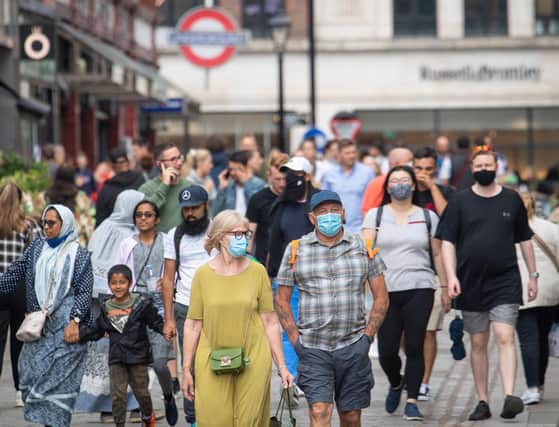Data must continue to drive response - leader comment


And yet facts and figures show just how bumpy this journey is proving to be. According to the World Health Organisation, Scotland is home to five of the ten regions with the highest infection rates in Europe, with Tayside worst at an incidence of 661 cases per 100,000 people. More than 24,000 people tested positive last week and 17 died. We continue to have the higest Covid rate in the UK.
The Scottish government appears to have successfully conveyed the impression that the pandemic has been handled better here than elsewhere in the UK. But much has changed since Nicola Sturgeon's claim that "we probably did virtually eliminate the virus" last summer. Our NHS is under strain, with Covid-related staff absences doubling in two months. Contact tracers have moved to prioritising cases where there is a high risk of transmission, with phone calls only made in the most urgent cases.
Advertisement
Hide AdAdvertisement
Hide AdThe opening of drop-in centres across Scotland this week is welcome, as is the prospect of booster doses from the autumn. But the vaccination programme has consistently lagged behind the rest of the UK, and poor messaging surrounding whether football fans should travel to London during the Euros contributed to a spike in transmission.
Yes, the vaccine has changed the dynamics of our response to the pandemic. In the longer term, inoculation will make the return to near-normality possible. We will learn to live with Covid, as we have learned to live with flu. But in the shorter term, the vaccine should not blind us to the continued need to be flexible and adjust dates and decisions in response to data.